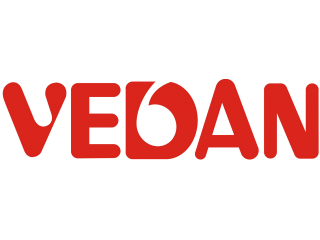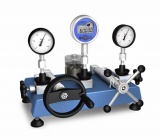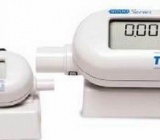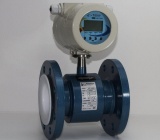What do you know about testing instrumentation?
The term “testing instrumentation” is often mentioned in the mass media or on some websites, but perhaps few people understand its definition and significance. The article below, invite you to learn more about this issue.

What do you know about testing instrumentation?
Testing measuring equipment, according to the Ordinance on Measurement 1999, is the state management of metrology for the purpose of ensuring fairness in commercial transactions. In principle, measuring devices belonging to group 2 are required to be tested, such as those used to quantify goods and services in purchase and sale, payment, safety assurance, and public health protection. , environmental protection, in inspection, examination, judicial expertise and in other official activities, etc. such as weighing equipment of vendors, gas meters, taxi fare meters, Electricity meter is used to calculate the amount of electricity a family or a unit uses in months.... Verification is a technical activity according to a certain process in order to evaluate and confirm the conformity with metrological technical characteristics of measuring instruments, products and goods with requirements specified in relevant technical regulations. . After the inspection, the results will be determined by the state-licensed accrediting agency as pass or fail. Verification of measuring equipment is also different from instrument calibration. Instrument calibration is the establishment of a relationship between a measurement and a measuring instrument. Calibration is concerned with determining the metrological characteristics of a measuring instrument. Calibration is not mandatory. Based on the results of the calibration, the customer decides for himself whether the instrument is in use or not. The technical nature of calibration and verification is the same: it is the comparison of a measuring instrument with a standard in order to evaluate its error and other technical and metrological characteristics. The difference is that verification is required by law, which is mandatory while calibration is voluntary. Verification of measuring equipment is also different from instrument calibration. Instrument calibration is the establishment of a relationship between a measurement and a measuring instrument. Calibration is concerned with determining the metrological characteristics of a measuring instrument. Calibration is not mandatory. Based on the results of the calibration, the customer decides for himself whether the instrument is in use or not. The technical nature of calibration and verification is the same: it is the comparison of a measuring instrument with a standard in order to evaluate its error and other technical and metrological characteristics. The difference is that verification is required by law, which is mandatory while calibration is voluntary. Verification of measuring equipment is also different from instrument calibration. Instrument calibration is the establishment of a relationship between a measurement and a measuring instrument. Calibration is concerned with determining the metrological characteristics of a measuring instrument. Calibration is not mandatory. Based on the results of the calibration, the customer decides for himself whether the instrument is in use or not. The technical nature of calibration and verification is the same: it is the comparison of a measuring instrument with a standard in order to evaluate its error and other technical and metrological characteristics. The difference is that verification is required by law, which is mandatory while calibration is voluntary. Calibration is concerned with determining the metrological characteristics of a measuring instrument. Calibration is not mandatory. Based on the results of the calibration, the customer decides for himself whether the instrument is in use or not. The technical nature of calibration and verification is the same: it is the comparison of a measuring instrument with a standard in order to evaluate its error and other technical and metrological characteristics. The difference is that verification is required by law, which is mandatory while calibration is voluntary. Calibration is concerned with determining the metrological characteristics of a measuring instrument. Calibration is not mandatory. Based on the results of the calibration, the customer decides for himself whether the instrument is in use or not. The technical nature of calibration and verification is the same: it is the comparison of a measuring instrument with a standard in order to evaluate its error and other technical and metrological characteristics. The difference is that verification is required by law, which is mandatory while calibration is voluntary.

Certificate of inspection of measuring equipment.
The importance of measuring instrumentation
Verification of measuring equipment is compulsory for measuring instruments whose names are on the "List of equipment for which inspection is compulsory" according to Decision No. 13/2007/QD-BKHCN dated 6/7/2007 of the Ministry of Science and Technology. The inspection is only carried out by a unit that has been appointed by a competent state agency (in the field of Standards - Measurement - Quality) within the specified scope. Once the devices are tested, the inspection status will be indicated by the Test Stamp and/or the Certificate of Inspection. The inspection of measuring equipment is carried out by a qualified metrologist in accordance with the inspection procedures. Measuring equipment that has passed the inspection requirements is affixed with an inspection stamp or issued a test certificate and is valid throughout the country. Besides,
The above is useful information related to the inspection of measuring equipment . Hopefully, through this article, you have somewhat understood the concept as well as the importance of testing measuring devices.
Relative post | Xem tất cả
- Introduction of service and process of water flowmeter inspection
- What are the benefits of testing a mechanical cold water flowmeter?
- Inspecting the electronic cold water flowmeter you should know
- What is pressure equipment testing?
- What do you know about flowmeter?
- Endress Hauser flowmeter
- Industrial measuring equipment
- Some information about onsite calibration, verification
- Everything You Need to Know About Calibrating Thermometers
- Do you know anything about Onsite calibration?
- Liquid meter























 Legal
Legal  Call: 0283.7583869
Call: 0283.7583869  Search for Certificate
Search for Certificate  Contact
Contact